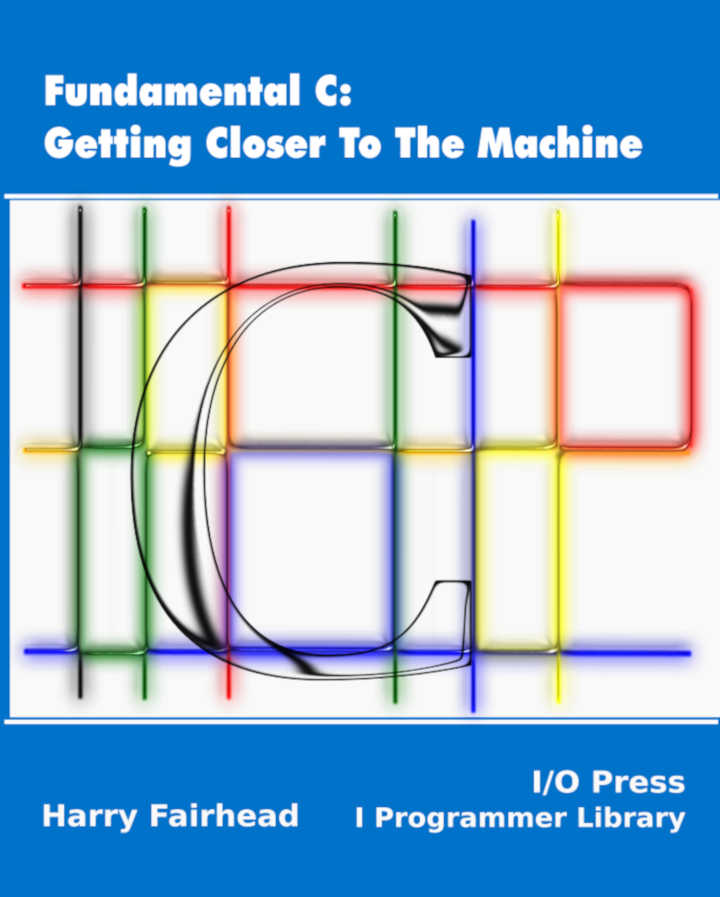| Fundamental C - Enumerations |
| Written by Harry Fairhead | |||
| Monday, 06 April 2020 | |||
|
This extract, from my new book on programming C in an IoT context, explains what enumerations are all about. You don't need them, but they do make your programs easier to read and hence perhaps less error prone. This extract is from Chapter 8: Arrays, which concludes by considering the interaction between arrays and enumerations. Fundamental C: Getting Closer To The MachineNow available as a paperback and ebook from Amazon.
Also see the companion volume: Applying C
In the chapter but not included in this extract:
EnumerationsOne of the standard uses of an array is to store data relating to specific labels. For example, suppose you wanted to record the number of hours you worked in a week. You might want to write something like: work[mon]=9; C enumerations were designed to allow you to do exactly this and similar tasks. Notice first that the basic way to do this job would be to assign integers to days, Sunday=0 and so on. So: work[mon]=9; would be: work[1]=9; An enumeration is just an assignment of integers to labels. For example: enum week {
sunday=0, monday=1, tuesday=2, wednesday=3,
This declares a new data type – enum week. In fact you don’t need to list the values because if you leave them out the compiler assumes you mean values from 0 increasing by one to however many values you need. In other words you could have written the above as: enum week {
sunday, monday, tuesday, wednesday, thursday,friday,
If you do use explicit assignment then you can assign any integer values you like, i.e. they don’t have to be in order. You can use this to create a variable that can only take on the values you have listed. For example: enum week work; now you can write work=monday; Notice that monday is not a variable. The compiler looks up monday in your definition of the enum and replaces it by the integer you set it to. However work is a variable and it is just a plain old int. In other words: enum week work; work=monday; is converted to: int work; work=1; which you can check with: printf(“%d”,work); which prints 1. Notice that as monday isn’t a variable and it isn’t an lvalue you can’t assign to it and: monday=9; generates an error. To return the original example, recording work hours for each day of the week. This can be done by declaring an array of type enum week: enum week work[7]; Now you can write: work[monday]=9; Notice that work is an array of int and the compiler converts the instruction into: int work[7]; work[1]=9; You can also write things like: for(enum week day=sunday;day<=saturday;day++){
printf("%d\n",work[day]);
}
But it is worth keeping in mind that the compiler converts this into: for(int day=0;day<=6;day++){
printf("%d\n",work[day]);
}
In other languages this sort of transformation would be called “syntactic sugar” to indicate that it wasn’t a real addition to the language, just something that makes it more readable. This is about the only syntactic sugar C provides. You can use enumerations in other contexts than arrays and for loops. One particularly common use is to implement options that can be combined using bitwise logical operators – see Chapter 12. Another is to define what looks like a boolean type using: enum bool {false,true};
After this you can declare a variable that appears to be a boolean. For example: enum bool myBool; myBool=true; if(myBool) … Notice that this myBool is still an int and true is 1 and false is 0. In Chapter 11 we meet the typedef statement which can be used to define synonyms for types. Using this we can get rid of the need to use enum in all declarations. For example: typedef enum {false,true} bool; bool myBool=true; if(myBool)… Although this sort of approach is commonly used it can become confusing and lead to errors. If you can’t work with C99 and bool it is better to explicitly use ints and 0 and 1 for false and true. Summary
Related ArticlesRemote C/C++ Development With NetBeans Getting Started With C/C++ On The Micro:bit Fundamental C: Getting Closer To The MachineNow available as a paperback and ebook from Amazon.
Also see the companion volume: Applying C
To be informed about new articles on I Programmer, sign up for our weekly newsletter, subscribe to the RSS feed and follow us on Twitter, Facebook or Linkedin.
Comments
or email your comment to: comments@i-programmer.info
|
|||
| Last Updated ( Monday, 15 June 2020 ) |



